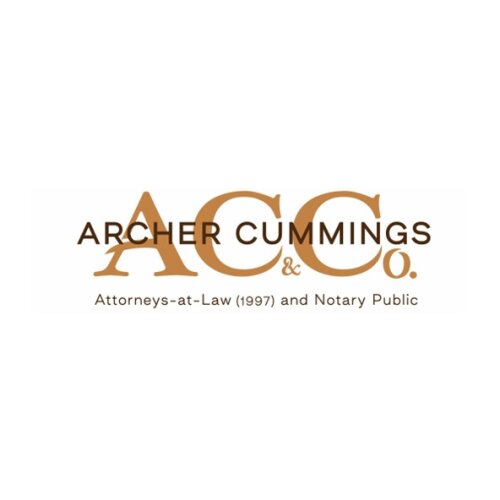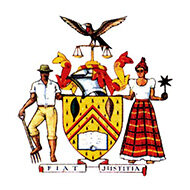Best ADR Mediation & Arbitration Lawyers in Jamaica
Share your needs with us, get contacted by law firms.
Free. Takes 2 min.
Or refine your search by selecting a city:
List of the best lawyers in Jamaica
About ADR Mediation & Arbitration Law in Jamaica
Alternative Dispute Resolution (ADR) in Jamaica encompasses mediation and arbitration as essential components for resolving disputes outside traditional court settings. The Jamaican legal system supports ADR as an efficient, private, and cost-effective way for individuals and organizations to resolve conflicts. Mediation involves a neutral third-party mediator assisting disputing parties in reaching a voluntary settlement. Arbitration, on the other hand, involves an arbitrator who renders a binding decision after hearing the evidence and arguments. ADR is increasingly favored in Jamaica for its ability to reduce court congestion and foster amicable settlements.
Why You May Need a Lawyer
There are several scenarios where individuals may require legal assistance in the field of ADR Mediation & Arbitration in Jamaica:
- Understanding complex ADR agreements or clauses within contracts.
- Choosing the appropriate ADR method that best suits the specific nature of the dispute.
- Guidance and representation throughout the mediation or arbitration process.
- Ensuring that any settlement or arbitration award is legally binding and enforceable.
- Handling multi-party disputes or cases involving intricate legal issues.
- Navigating cross-border disputes which may involve international ADR rules.
- Assistance in appeals or challenging arbitration awards where applicable.
Local Laws Overview
In Jamaica, the legal framework governing ADR is supported by several statutes and regulations that ensure its effective implementation. One key piece of legislation is the Arbitration Act, which aligns with international standards, providing guidelines for conducting arbitration. The Mediation Act similarly supports the process of mediation, outlining standards for mediators and the confidentiality of the proceedings. Furthermore, Jamaica is a signatory to international treaties like the New York Convention, which facilitates the enforcement of arbitration awards globally. Local laws emphasize confidentiality, flexibility, and neutrality in ADR processes, making them attractive alternatives to litigation.
Frequently Asked Questions
What is the difference between mediation and arbitration?
Mediation is a facilitative process where a neutral third party helps disputing parties reach a voluntary agreement. Arbitration involves a binding decision made by an arbitrator after considering the evidence and arguments presented by the parties.
Is a lawyer necessary in ADR proceedings?
While not mandatory, having a lawyer can be beneficial for navigating the complexities of ADR proceedings, especially in understanding legal rights and obligations, preparing for sessions, and drafting binding agreements.
Are ADR decisions binding?
In arbitration, the decisions (or awards) are legally binding and enforceable. In mediation, the agreements are binding only if both parties reach a mutual settlement and formalize it in a contract.
Can an arbitration award be challenged in Jamaica?
Yes, under certain circumstances such as procedural irregularities, lack of jurisdiction, or evidence of bias, an arbitration award can be challenged in court.
How are mediators and arbitrators selected?
Parties can mutually agree on a mediator or arbitrator, or they can request a professional institution to appoint one based on expertise, neutrality, and availability.
What types of disputes are suitable for ADR?
ADR can be used for a wide range of disputes including commercial conflicts, family matters, employment disputes, and contractual disagreements.
Is ADR confidential?
Yes, both mediation and arbitration proceedings in Jamaica are private and confidential, ensuring that the details of the dispute are not disclosed publicly.
What is the cost of ADR compared to litigation?
ADR is generally less costly than litigation due to reduced legal fees and quicker resolution times. However, costs can vary based on the complexity of the case and the professionals involved.
How long does an ADR process take?
The duration of an ADR process depends on the complexity of the dispute and the willingness of the parties to cooperate. Mediation can often be resolved in a matter of days or weeks, while arbitration may take longer.
Are online ADR services available in Jamaica?
Yes, online mediation and arbitration services are increasingly available, providing flexibility and convenience, especially for parties located in different geographical areas.
Additional Resources
For further assistance, you may consider reaching out to the following organizations:
- The Dispute Resolution Foundation of Jamaica (DRF): Offers various ADR services and training.
- The Jamaica International Arbitration Centre (JIAC): Provides arbitration services and resources.
- The Jamaican Bar Association: A resource for finding qualified ADR legal practitioners.
- The Ministry of Justice: Provides information on legal reforms and ADR regulations.
Next Steps
If you need legal assistance in ADR Mediation & Arbitration, consider taking the following steps:
- Identify the nature and specifics of your dispute to determine whether ADR is suitable.
- Consult with a qualified lawyer or ADR professional to understand your rights and options.
- Prepare all relevant documents and evidence related to the dispute.
- Select an appropriate ADR service provider based on the nature of the dispute and recommendations from your legal advisor.
- Attend all scheduled ADR sessions prepared and in good faith to resolve the dispute.
- Ensure any agreements or awards are documented and enforceable in accordance with Jamaican law.
Lawzana helps you find the best lawyers and law firms in Jamaica through a curated and pre-screened list of qualified legal professionals. Our platform offers rankings and detailed profiles of attorneys and law firms, allowing you to compare based on practice areas, including ADR Mediation & Arbitration , experience, and client feedback.
Each profile includes a description of the firm's areas of practice, client reviews, team members and partners, year of establishment, spoken languages, office locations, contact information, social media presence, and any published articles or resources. Most firms on our platform speak English and are experienced in both local and international legal matters.
Get a quote from top-rated law firms in Jamaica — quickly, securely, and without unnecessary hassle.
Disclaimer:
The information provided on this page is for general informational purposes only and does not constitute legal advice. While we strive to ensure the accuracy and relevance of the content, legal information may change over time, and interpretations of the law can vary. You should always consult with a qualified legal professional for advice specific to your situation.
We disclaim all liability for actions taken or not taken based on the content of this page. If you believe any information is incorrect or outdated, please contact us, and we will review and update it where appropriate.
Browse adr mediation & arbitration law firms by city in Jamaica
Refine your search by selecting a city.
















